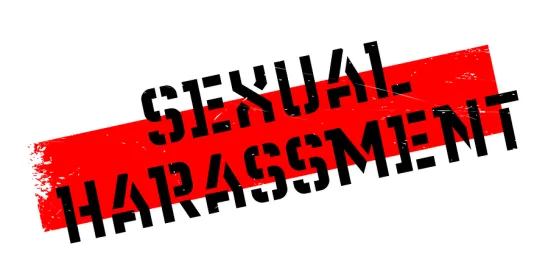Beginning 26 October 2024, employers in England, Scotland, and Wales will be under a new obligation to take “reasonable steps” to prevent sexual harassment of workers in the course of their employment. Details regarding this obligation are contained in the Worker Protection (Amendment of Equality Act 2010) Act 2023.
Quick Hits
- The Equality and Human Rights Commission (EHRC) published technical guidance for employers on 26 September 2024, after a short consultation on a draft version earlier this year. Alongside the full guidance, the EHRC produced the Employer 8-step guide: Preventing sexual harassment at work.
- Under the act, employers will be held accountable for addressing sexual harassment after it occurs and for proactively mitigating the risk of such conduct occurring.
- The new steps will be in addition to the existing provisions contained in the Equality Act 2010, which protects workers from discrimination, harassment, and victimisation.
- The sexual harassment preventative duty applies to all employers, regardless of size.
Employers will have a preventative duty concerning sexual harassment, which means that employers must now anticipate scenarios where sexual harassment may occur. “Sexual harassment” is defined as “unwanted conduct of a sexual nature which has the purpose or effect of violating a worker’s dignity, or creating an intimidating, hostile, degrading, humiliating or offensive environment for that worker.” This behaviour can include unwelcome sexual advances, physical contact, sexual comments or jokes, or sending sexually explicit messages or images. The preventative duty requires employers to take reasonable steps to prevent worker-on-worker harassment and harassment by third parties, such as customers, clients, suppliers, or patients. Employers will need to demonstrate the specific measures they have taken to comply with their legal obligation.
EHRC Guidelines: Reasonable Steps
The EHRC has provided guidance that sets out eight practical steps that employers may take to assist in taking positive action. These include reviewing the effectiveness of policies and procedures, engaging with staff, ensuring sufficient and regular staff training, establishing reporting channels (such as an anonymous online reporting system), making a record of all reported incidents of sexual harassment, and regularly reviewing the records.
According to the EHRC guidance, what is considered “reasonable” will vary from employer to employer. While “reasonableness” is an objective test that varies based on the specifics of each case, the EHRC sets out relevant factors to be considered when making an assessment. These include the employer’s size and resources, the impact of a specific action, the existence of concerns regarding sexual harassment, any applicable regulatory standards, and the effectiveness or ineffectiveness of previous measures.
The EHRC encourages each employer to:
- “consider the risks of sexual harassment occurring in the course of employment”;
- “consider what steps it could take to reduce those risks and prevent sexual harassment of their workers”;
- “consider which of those steps it would be reasonable for it to take”; and
- “implement those reasonable steps.”
Enforcement Action
The EHRC can take enforcement action against an employer that has not complied with the act’s obligation to prevent sexual harassment. If preventative steps have not been taken, workers can report their concerns to a trade union or the EHRC, even if an incident of sexual harassment has not occurred. The EHRC holds the power to investigate employers, require an employer to provide an action plan, enter into a formal, legally binding agreement with an employer to prevent future unlawful acts, and/or apply for an injunction to restrain an employer from committing an unlawful act.
If an employment tribunal finds there has been sexual harassment of a worker and awards compensation, the tribunal can increase that compensation by up to 25 percent if it considers an employer to be in breach of its preventative duty.
Next Steps
In light of the EHRC’s recommended guidance, employers may wish to take this opportunity to review their employee training on sexual harassment—is it sufficient and/or does it need to be refreshed and delivered again? In addition, employers may wish to consider reviewing an existing policy on sexual harassment and/or implementing a new written policy.




 />i
/>i

